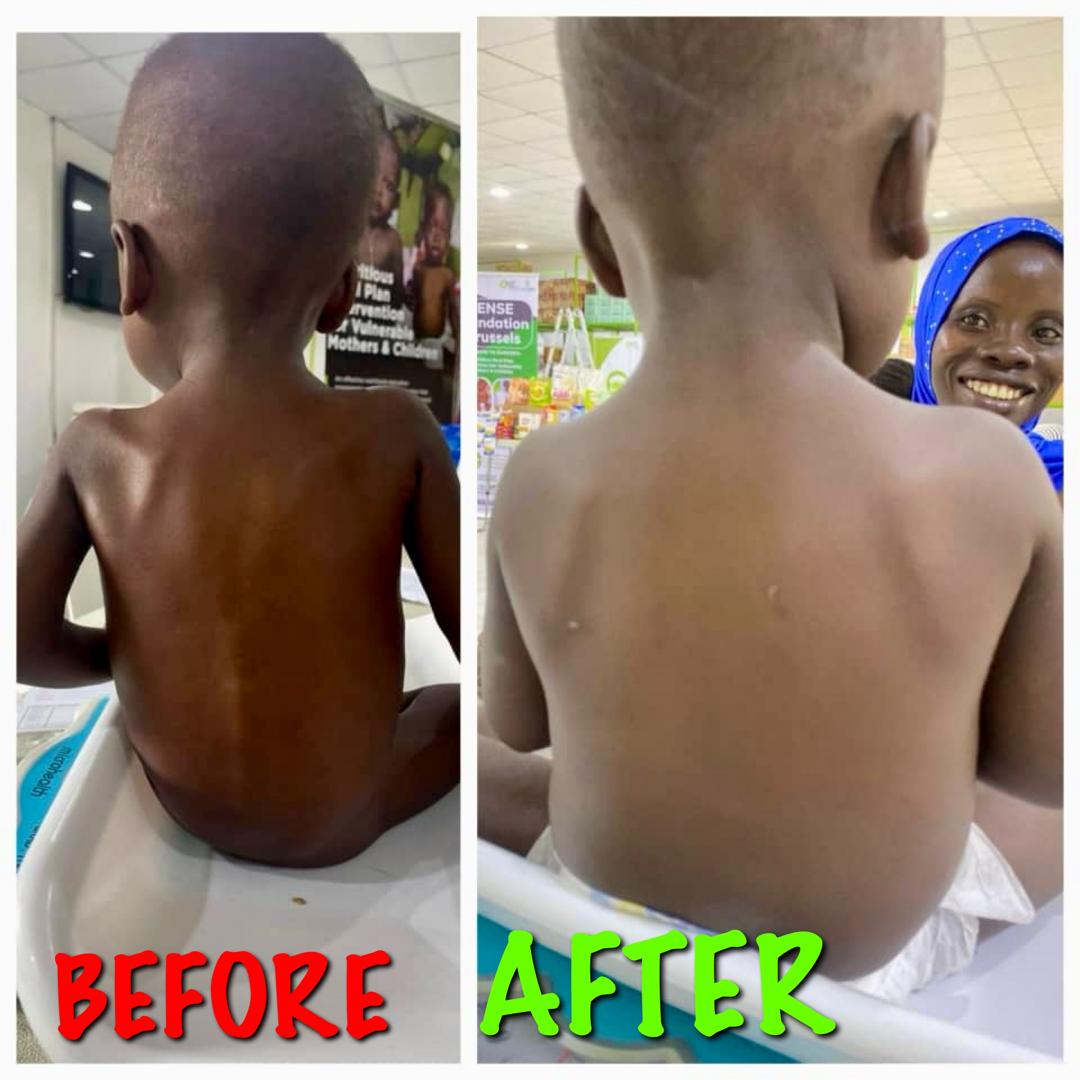Nigeria has one of the highest burdens of malnutrition in the world, with over 2.5 million children suffering from severe acute malnutrition (SAM) annually, and less than 20% receiving the treatment they need. Malnutrition contributes to nearly 50% of child deaths under five, making early intervention critical.
Wahab diagnosed with severe acute malnutrition with MUAC 10.5 cm and weight 6.5 kg was referred from Agege PHC to the Food Bank. His mother, a young mother of five, was barely making ends meet after her husband lost his job. With no stable income, she often skipped meals so her children could eat. But even then, the food was never enough. Her youngest, a 19-month-old boy, started losing weight rapidly due to persistent diarrhea, despite multiple medications. At some point, the diarrhea treatment stopped working, and his condition worsened. He became extremely weak and had never walked since birth.
Upon enrollment to the NUMEPLAN program, he received comprehensive nutrition assessment, including weight, height, and MUAC. His mother was provided with ready-to-use therapeutic food (RUTF), nutritious food items, adequate nutrition and hygiene education.
He attended bi-weekly visits, where his progress was carefully monitored, and his mother received continuous counseling on feeding practices and hygiene. Over the course of six visits, his condition improved significantly. His weight increased to 7.8 kg, and his MUAC improved to 12.8 cm. Though still fragile, his strength gradually returned.
Months after consistent nutrition support, he finally reached a milestone his mother feared he never would—he took his first steps. Today, he is active and playful, and his mother is empowered with the knowledge and resources to keep him healthy. His journey reflects the impact of timely intervention and adequate nutrition.
With millions of children still at risk, continued support for nutrition programs remains a lifesaving necessity.


